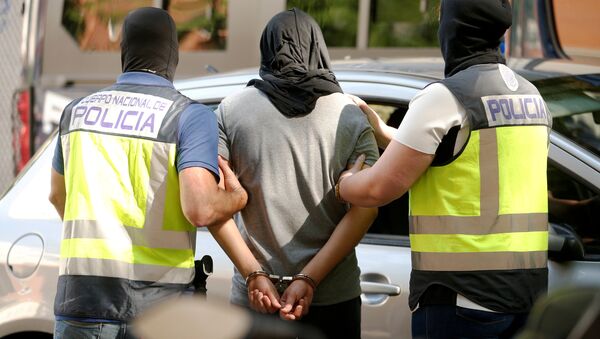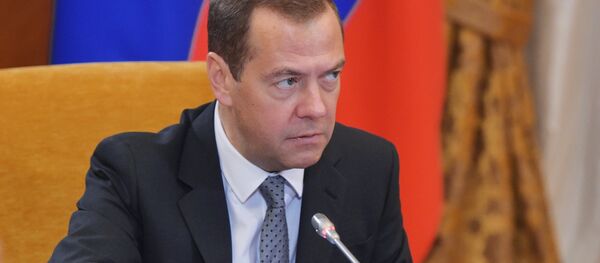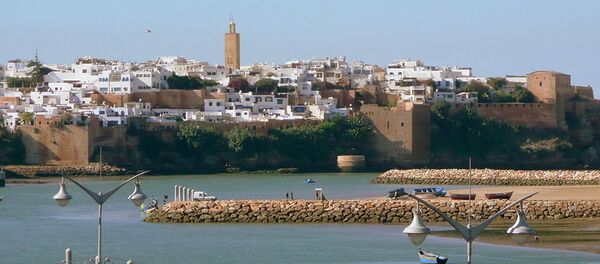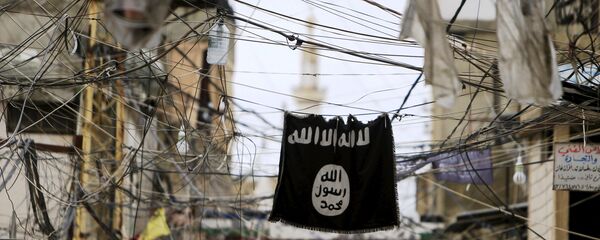MOSCOW (Sputnik) — On Thursday, a car rammed into a crowd in Spanish city of Barcelona, killing 14 people and injuring dozens more. A few hours later, a similar attack was carried out in a coastal town of Cambrils, also in Spain’s Catalonia, leaving one person dead and injuring six. On Friday, a stabbing attack was carried out in Finland's town of Turku, leaving two people dead and eight injured.
Abderrahman Mechkah, a suspect in Finland’s attack is a Moroccan asylum seeker. Two suspects in Catalonia’s attacks, Younes Abouyaaqoub and Said Aallaa, are also of Moroccan origin.
Paul Rogers, Professor at the Department of Peace Studies in University of Bradford, told Sputnik that North Africa was regarded as a region where it might be easier for terrorists to recruit new militants than in other areas, but Morocco could hardly be singled out.
According to Rodgers, "Morocco, Tunisia and Libya and to a less extent Algeria, they all have been major recruiting grounds for such movements as al-Qaeda and ISIS [Islamic State, Daesh]."
Rogers noted that several bomb attacks were carried out in Morocco by Moroccan groups in the early 2000s, focusing on Western targets, in particular, in Casablanca, and Moroccans were part of the cell responsible for the railway terminal attack in Madrid in 2004.
"So there has been a Moroccan connection right through. Recruitment continues even though it is a stable country," Rogers said.
According to a 2016 study by the National Bureau of Economic Research, Tunisia, another North African state, was the top home country of Daesh foreign fighters.
Ali Goutali, former ambassador of Tunisia to Russia and a member of the executive bureau of Tunisia's ruling party Nida Tunes told Sputnik that the spread of religious extremism and various attacks in the Middle East and North Africa, extending to Europe, coincided with the Arab Spring protests, a wave of both violent and peaceful demonstrations that went through several countries, including Tunisia, Egypt, Syria and Morocco, as well as a few others.
The former ambassador added that attacks were "perpetrated often by local citizens, though sometimes of foreign origin," but "claiming that Tunisia is growing terrorists who later strike Europe is absolutely false."
"As for religious extremism and radicalization of some Tunisian young people following the uprising, the governments since the democratic election of a president and a parliament have been successful, under the impulse of the current President Caid Essebsi and the ruling party Nida Tunes, to curtail this trend," Goutali said.
MOROCCO’S DE-RADICALIZATION
Various estimates put the number of Moroccans, fighting in the ranks of various terror groups, mainly Daesh, between 1,300 and 2,000. About 1,000 of them have returned to Morocco, but the country has been able to manage the terror threat within its borders.
"As for Morocco, the country has not been touched by terrorism since the Marrakesh attack in 2011. I think this is due to on the one hand, the effort of the security forces," Dalia Ghanem-Yazbeck, an El-Erian fellow at the Carnegie Middle East Center in Beirut, told Sputnik.
She also praised deradicalization programs and rehabilitation in prisons, effectively implemented in the country.
"I think because Morocco is now a country that is difficult for these [terrorist] groups to exist in, they [have] basically taken some of their operations to Spain. So Spain becomes a target partly because Morocco itself has very heavy and very harsh security procedures," Rogers said.
The expert noted that Morocco was already cooperating closely with the European Security forces.
"There will be probably an increase in the cooperation between the Spanish and the Moroccans following what has happened, but it won’t be a radical transformation," the expert said.
EXAMPLE FOR EUROPE
"I think Europe should focus more on such steps and not tighten scrutiny towards different ethnic groups because this is going to create resentment among them and eventually backfire," the expert said.
She listed such initiatives as a special imam training program, promotion of moderate Islam, human development projects for areas struggling with poverty, programs for deradicalization in prison and prisoners’ reintegration into society, whether through work or study opportunities.




